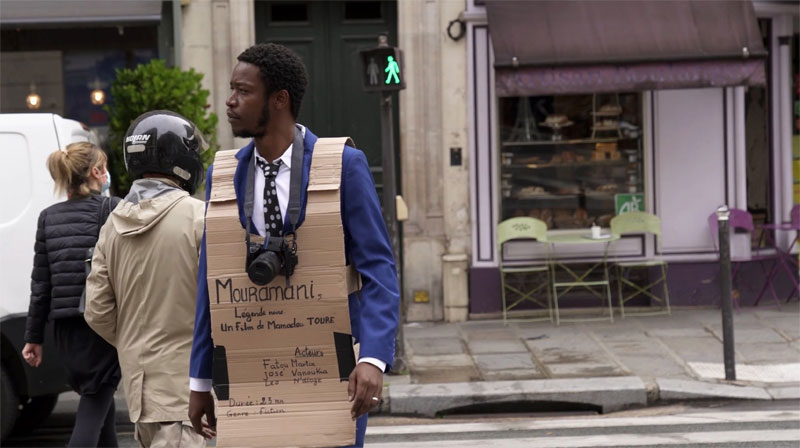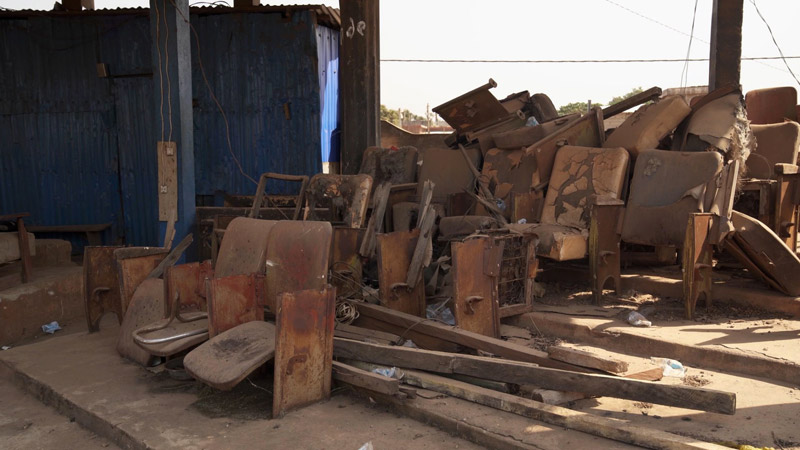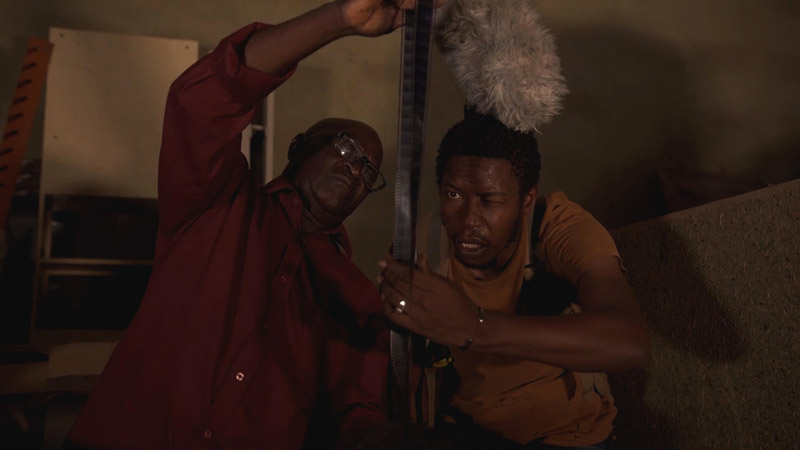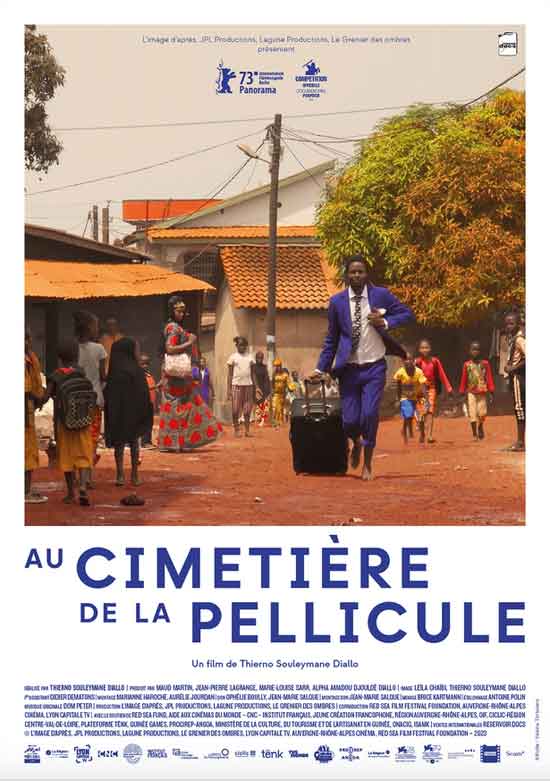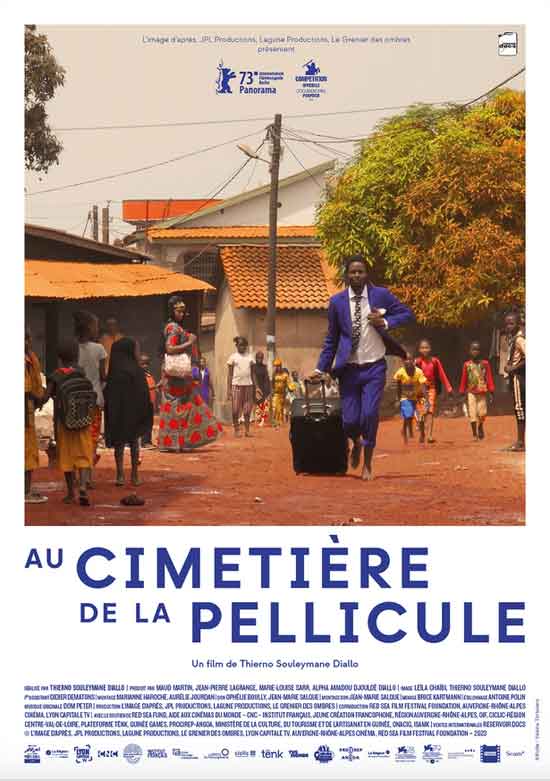Au cimetière de la pellicule
-
Réalisé par Thierno Souleymane Diallo • Écrit par Thierno Souleymane Diallo
-
France, Sénégal, Guinée • 2023 • 93 minutes • Couleur
- Réalisation :
Thierno Souleymane Diallo - Écriture :
Thierno Souleymane Diallo - Assistanat de réalisation :
Didier Dematons - Image :
Leila Chaïbi, Thierno Souleymane Diallo - Son :
Ophélie Boully, Jean-Marie Salque - Montage :
Aurélie Jourdan, Marianne Haroche - Musique originale :
Dominique Peter - Mixage :
Brice Kartmann - Étalonnage :
Antoine Polin - Montage son :
Jean-Marie Salque - Sound design :
Brice Kartmann - Traduction :
Fabou Koulibaly, Bourhane Touré, Cherif Bah Hammady, Marie Sarr
- Production (personne) :
Maud Martin, Jean-Pierre Lagrange, Marie-Louise Sarr - Production (structure) :
L' image d'après - Coproduction :
JPL Productions, Lagune Productions, Le Grenier des Ombres - Diffuseur :
Lyon Capitale TV, Tënk - Participation :
Fonds Image de la Francophonie, Procirep, OIF - Organisation Internationale de la Francophonie, Ministère de la culture, du tourisme et de l'artisanat en Guinée, ONACIG - Office National de Cinématographie de Guinée, ISAMK, Institut français. Département Cinéma (Cinémathèque Afrique), Festival international du Film d'Amiens, Eye on Films, Scam - Brouillon d'un rêve, La Culture avec la Copie Privée, Angoa-Agicoa, Ciclic Centre-Val de Loire, CNC. Aide aux Cinémas du Monde, Auvergne-Rhône-Alpes Cinéma, Red Sea Film Fund, Guinée Games, Cell Studios - Ayant droit :
L' image d'après, Lagune Productions, JPL Productions, Le Grenier des Ombres
- N° ISAN :
ISAN 0000-0005-2A18-0000-J-0000-0000-H
Résumé
En 1953, Mamadou Touré réalise Mouramani, considéré comme le premier film réalisé par un cinéaste africain noir francophone. Mais personne ne sait où le trouver. Thierno Souleymane Diallo parcourt la Guinée à la recherche de cette œuvre perdue, utilisant sa caméra pour se confronter à l’Histoire et au cinéma, celui que l’on regarde et celui que l’on fait.
"The 1953 film Mouramani by Mamadou Touré is believed to be the first film ever made in Guinea. Interested in the conditions of its production – and the whereabouts of a film print – Thierno Souleymane Diallo sets out to find people who can tell him about the film’s history and its reception. Shots of the young filmmaker himself run like a thread through the film. Equipped with a video camera, microphone and headphones, he travels through the country, sometimes on the back of a donkey, sometimes barefoot, and films everything he experiences on the road and during his conversations with archivists and those who remember the period. Increasingly, the film turns into a journey through Guinea’s film history that takes him to deserted cinema halls and abandoned film archives. In the process, it alternates between observational scenes of everyday life, performative elements and re-enactments. The result is a multi-layered portrait of a country that is thought to have played a pioneering role in African cinema, but which is only slowly rediscovering the importance of films and film archives for its cultural identity and its history."
(Berlinale)
Sélections et distinctions
- 2024 • FIPADOC - Festival International Documentaire • Biarritz (France) • Panorama
- 2023 • Festival international du film de Berlin - Berlinale • Berlin (Allemagne) • Panorama Dokumente - Première mondiale
- 2023 • Stlouis'Docs - Festival du film documentaire de Saint-Louis • Saint Louis (Sénégal) • Compétition internationale
- 2023 • Festival La Rochelle Cinéma • La Rochelle (France) • L'Année du documentaire
- 2023 • FESPACO - Festival Panafricain du Cinéma et de la Télévision de Ouagadougou • Ouagadougou (Burkina Faso) • Compétition officielle documentaire
- 2023 • Festival Cinémas d'Afrique • Lausanne (Suisse) • Panorama
- 2023 • Les Rencontres cinématographiques internationales de Cerbère-Collioure • Collioure (France) • Sélection
- 2023 • IDFA - International Documentary Festival Amsterdam • Amsterdam (Pays-Bas) • Best of Fests
- 2023 • États généraux du film documentaire • Lussas (France) • Docmonde
